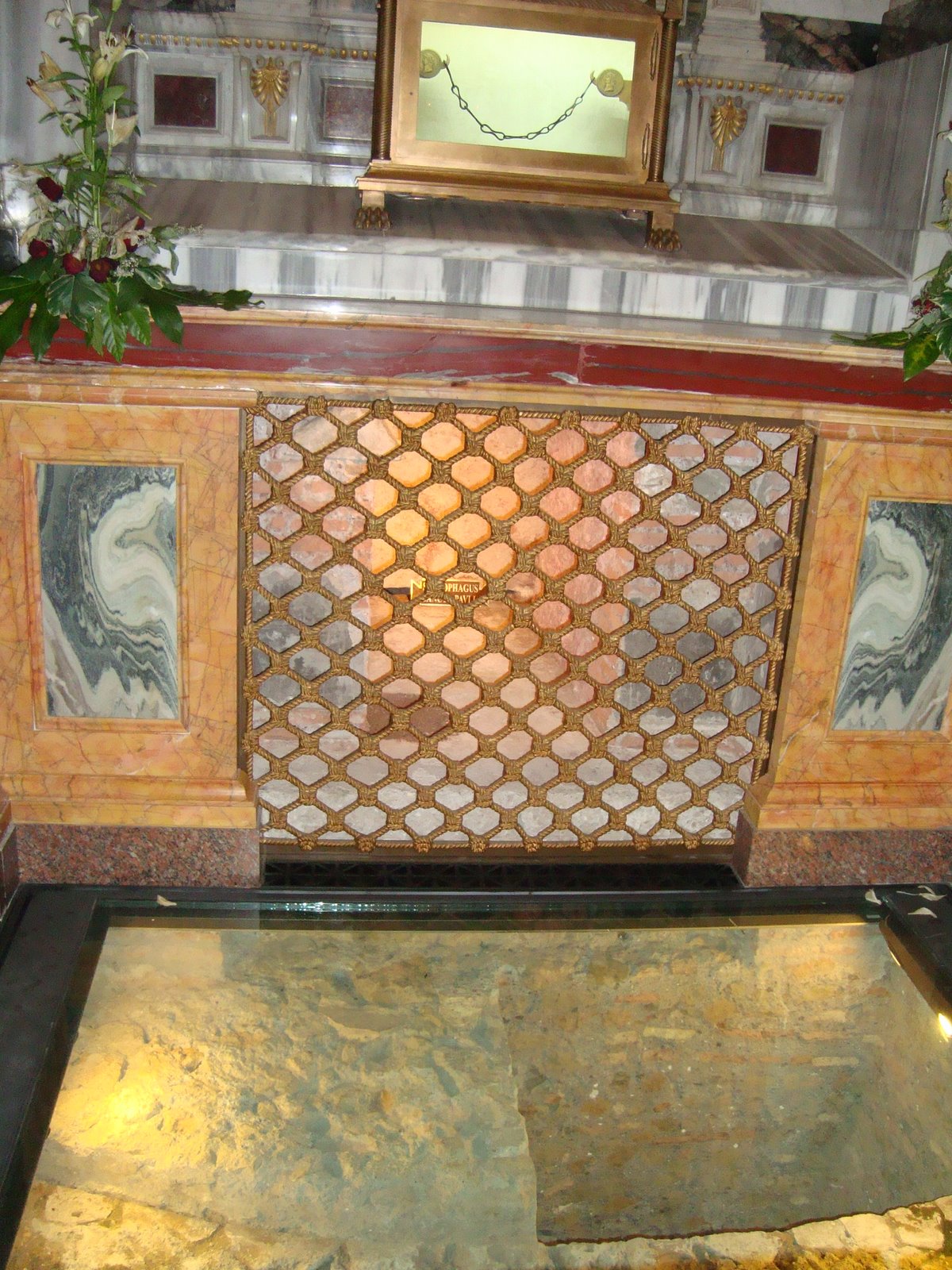
The Vatican Information Service reports, 3 June 2009:
In the Holy See Press Office this morning Cardinal Andrea Cordero Lanza di Montezemolo, archpriest of the papal basilica of St. Paul’s Outside-the-Walls, and Professor Ulderico Santamaria, director of the scientific laboratory of the Vatican Museums, hosted a presentation on the sarcophagus of St. Paul.
Cardinal Cordero explained how two years ago he had suggested to the Pope that the tomb of St. Paul be subject to a scientific examination. Benedict XVI accepted the proposal but ordered that the outcome only be announced at the end of the Pauline Year. Hence it was necessary to keep the results secret until then.
Professor Santamaria dwelt on the technical aspects of the survey, explaining how a small hole was made in the sarcophagus through which a probe was then introduced. Fragments of blue linen, purple linen interwoven with gold thread, grains of red incense and bone fragments were discovered. Carbon dating on organic elements from these finds suggest that they belong to a person who lived in the first or second centuries. “This”, the Pope said on 28 June during the closing ceremony for the Pauline Year, “seems to confirm the unanimous and uncontested tradition that these are the mortal remains of the Apostle Paul, and it fills our heart with profound emotion”.
The cardinal also explained how the Pope does not exclude the possibility of undertaking a more detailed examination of the sarcophagus of St. Paul. However, he went on, the Holy Father did not wish this to take place during the Pauline Year because, in order to open the sarcophagus, it would be necessary to dismantle the papal altar and the thirteenth-century baldachin by Arnolfo di Cambio which, he concluded, would be a difficult and delicate task.

